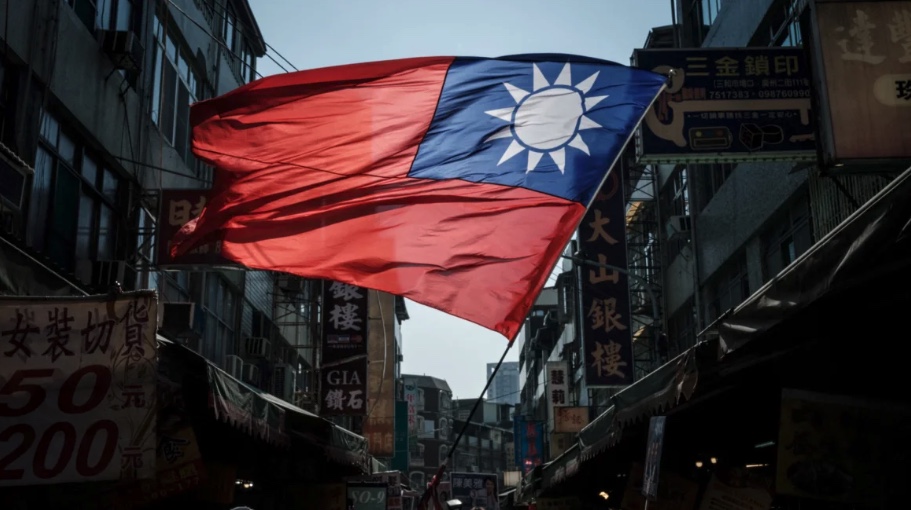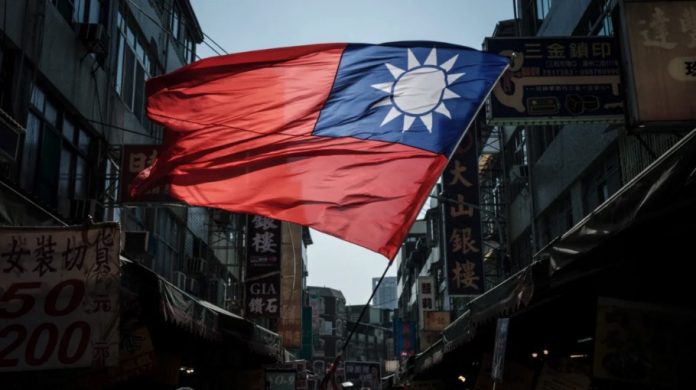เมื่อวันศุกร์ที่ผ่านมา จีนขู่ว่าจะบังคับใช้โทษประหารชีวิตในกรณีร้ายแรงสำหรับกลุ่มแบ่งแยกดินแดนไต้หวันที่ “หัวรุนแรง” แม้ว่าศาลจีนจะไม่มีเขตอำนาจเหนือเกาะที่ปกครองตามระบอบประชาธิปไตยก็ตาม จีนซึ่งถือว่าไต้หวันเป็นอาณาเขตของตน ได้แสดงออกอย่างเปิดเผยไม่เห็นด้วยกับประธานาธิบดี ไล่ ชิงเต๋อ ซึ่งเข้ารับตำแหน่งเมื่อเดือนที่แล้ว โดยตราหน้าเขาว่าเป็น “ผู้แบ่งแยกดินแดน” และจัดการแข่งขันสงครามไม่นานหลังจากการเข้ารับตำแหน่ง นับตั้งแต่ชัยชนะในการเลือกตั้งของไล่เมื่อเดือนมกราคม ไต้หวันรายงานแรงกดดันจากจีนที่เพิ่มขึ้น รวมถึงการปฏิบัติการทางทหารที่กำลังดำเนินอยู่ การคว่ำบาตรทางการค้า และการลาดตระเวนยามชายฝั่งรอบเกาะที่ไต้หวันควบคุมใกล้กับจีน
แนวปฏิบัติใหม่ระบุว่าศาล อัยการ และหน่วยงานด้านความมั่นคงของจีนควร “ลงโทษอย่างรุนแรงต่อเอกราชของไต้หวันที่แบ่งแยกประเทศและยุยงให้เกิดอาชญากรรมการแยกตัวตามกฎหมาย และปกป้องอธิปไตยของชาติ เอกภาพ และบูรณภาพแห่งดินแดนอย่างเด็ดเดี่ยว” ตามแนวทางของจีน สำนักข่าวซินหัวของรัฐ แนวปฏิบัติเหล่านี้ออกภายใต้กฎหมายที่มีอยู่ ซึ่งรวมถึงกฎหมายต่อต้านการแบ่งแยกดินแดนปี 2548 ซึ่งกำหนดพื้นฐานทางกฎหมายให้กับจีนในการปฏิบัติการทางทหารต่อไต้หวัน หากไต้หวันแยกตัวออกหรือดูเหมือนว่าจะแยกตัวออก ซุน ปิง เจ้าหน้าที่จากกระทรวงความมั่นคงสาธารณะของจีน ระบุว่าโทษสูงสุดสำหรับ “อาชญากรรมการแยกตัวออก” คือโทษประหารชีวิต รัฐบาลไต้หวันยังไม่มีการตอบสนองในทันที เนื่องจากเจ้าหน้าที่ยังคงทบทวนหลักเกณฑ์ใหม่นี้
แนวปฏิบัติดังกล่าวระบุถึงความผิดที่มีโทษ เช่น การสนับสนุนให้ไต้หวันเข้าสู่องค์กรระหว่างประเทศที่ต้องการสถานะรัฐ มีส่วนร่วมใน “การแลกเปลี่ยนอย่างเป็นทางการภายนอก” และการปราบปรามพรรค กลุ่ม หรือบุคคลที่ส่งเสริม “การรวมชาติ” พวกเขายังแนะนำข้อกว้างๆที่ครอบคลุม “การกระทำอื่นๆ ที่พยายามแยกไต้หวันออกจากจีน” เพื่อให้สามารถตีความได้ แม้ว่าไล่จะเสนอการเจรจากับจีนซ้ำแล้วซ้ำอีก แต่กลับถูกปฏิเสธ แต่เขายืนยันว่าอนาคตของไต้หวันควรถูกกำหนดโดยประชาชนของตนเพียงผู้เดียว ก่อนหน้านี้ จีนได้ดำเนินคดีทางกฎหมายกับเจ้าหน้าที่ไต้หวัน รวมถึงการคว่ำบาตรเซียว บีคิม อดีตเอกอัครราชทูตโดยพฤตินัยของไต้หวันประจำสหรัฐอเมริกา และรองประธานาธิบดีคนปัจจุบัน อย่างไรก็ตาม มาตรการเหล่านี้มีผลกระทบในทางปฏิบัติอย่างจำกัด เนื่องจากศาลจีนไม่มีเขตอำนาจเหนือไต้หวัน ซึ่งรัฐบาลปฏิเสธคำกล่าวอ้างอธิปไตยของปักกิ่ง นอกจากนี้ เจ้าหน้าที่อาวุโสของไต้หวัน รวมถึงประธานาธิบดี ไม่ได้เดินทางไปจีน ซึ่งเป็นการตอกย้ำความตึงเครียดทางการเมืองที่มีมายาวนานระหว่างรัฐบาลทั้งสอง
China threatens the death penalty for ‘diehard’ Taiwan separatists.

On Friday, China threatened to impose the death penalty in extreme cases for “diehard” Taiwan independence separatists, despite Chinese courts having no jurisdiction over the democratically governed island. China, which considers Taiwan its territory, has openly expressed its disapproval of President Lai Ching-te, who assumed office last month, labelling him a “separatist” and conducting war games shortly after his inauguration. Since Lai’s election victory in January, Taiwan has reported increased Chinese pressure, including ongoing military actions, trade sanctions, and coast guard patrols around Taiwan-controlled islands near China.
The new guidelines state that China’s courts, prosecutors, and security bodies should “severely punish Taiwan independence diehards for splitting the country and inciting secession crimes in accordance with the law, and resolutely defend national sovereignty, unity, and territorial integrity,” according to China’s state-run Xinhua news agency. These guidelines are issued under existing laws, including the 2005 anti-secession law, which provides China with the legal basis for military action against Taiwan if it secedes or appears about to. Sun Ping, an official from China’s Ministry of Public Security, stated that the maximum penalty for the “crime of secession” is the death penalty. “The sharp sword of legal action will always hang high,” she said. There was no immediate response from Taiwan’s government, as officials were still reviewing the new guidelines.
The guidelines specify punishable offences, such as advocating Taiwan’s entry into international organisations requiring statehood, engaging in “external official exchanges,” and suppressing parties, groups, or individuals promoting “reunification.” They also introduce a broad clause covering “other acts that seek to separate Taiwan from China,” allowing for flexible interpretation. Despite Lai’s repeated offers for dialogue with China, which have been rebuffed, he maintains that Taiwan’s future should be decided by its people alone. China has previously taken legal actions against Taiwanese officials, including sanctions on Hsiao Bi-khim, Taiwan’s former de facto ambassador to the United States and current vice president. However, these measures have limited practical impact since Chinese courts lack jurisdiction over Taiwan, whose government rejects Beijing’s sovereignty claims. Additionally, senior Taiwanese officials, including the president, do not travel to China, underscoring the longstanding political tensions between the two governments.
By CNN NEWS

















